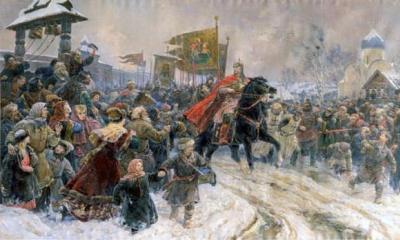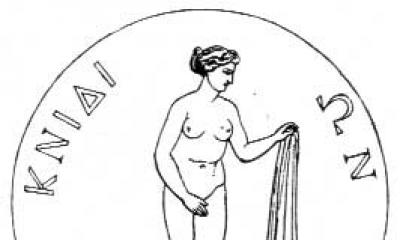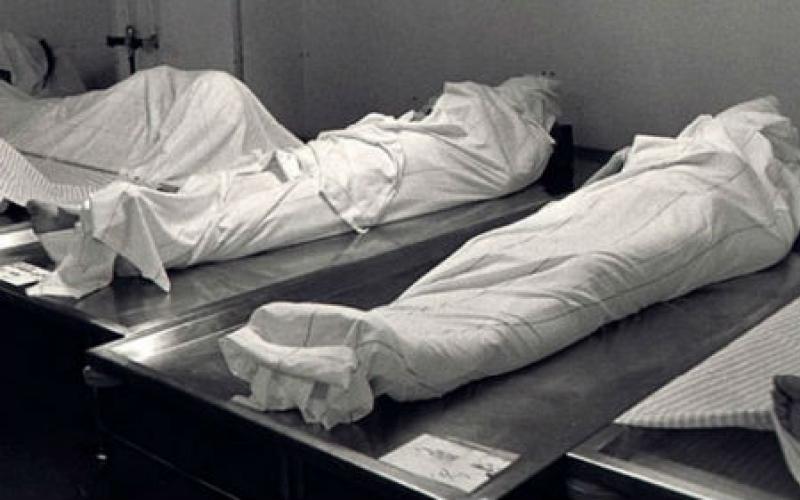1208
Over the past ten years, the quantity and quality of products of the so-called private labels (PLs) or private labels in the retail chains of our country has been growing at a decent pace, but the share of private labels in the Russian market, compared to the European and American markets, is negligible - only 3%. What are the prospects for developing the share of private labels in the segment of consumer goods?
If your goal is to provide a base for building, use private label conventions sparingly. Often inventors sell the product themselves in their main markets and use private market sales in smaller markets. You cannot afford to rest on your laurels once a deal is signed. You need to write a first year plan to launch your product. In your plan, you should include promotions, sales materials, visits to customer sites, mandatory training, new product development, participation in exhibitions, market research for new products, an ongoing system feedback with customers and quarterly sales status reviews.
Private Label in the Russian Market: Development and Promotion Strategies
Own trade mark or private label - in the simplest sense, today it is a trademark owned by a rather large retail chain, in which products under this trademark are sold. The biggest “plus” for manufacturers-owners of private labels is that they have the ability to fully control the production of their products, monitor their quality, as well as set their own prices and competently distribute products among their chain stores.
Your goals in the first year should be to ensure that sales and marketing efforts for your product are top-notch, as well as engaging with both corporate contacts and high impact end users. The success and longevity of your agreement will increase as you become more famous people associated with the product.
When building your own product line, start by recognizing the opportunity and knowing the target demographic. When you see an unfilled customer need, look for a solution. Entrepreneurs who limit their focus to targeted demographics rather than aiming for mass recruitment should strengthen their efforts and stand a better chance of a greater return on investment.
So, private label - is a brand that is manufactured to a retailer's specifications, owned and sold through the retailer's distribution network.
The first private labels appeared back in the eighties of the last century, and their prototypes were products that manufacturers immediately labeled with the label of the store where they would be sold, instead of the usual “Sugar” tag on a simple pack of sugar or the inscription “Milk” on a dairy product. Japanese retail chains began to sell private label goods in large volumes. This product was much cheaper than similar branded products and became very popular among the population.
Make sure your product meets the needs of your target audience. Strive to create similar products in the same category. For example, if you created a line that includes shampoos and conditioners, the natural progression could be styling products or bath products. This will increase your brand, which will make your company more recognizable.
If you want to create paper goods, mugs or clothes with original artwork or photographs, consider using an online provider that will allow you to upload your original work to your pre-created media. There are rarely upfront payments. You create your products and sell them. Sites often take care of transactions and shipping.
Today, consumer goods are produced, labeled and sold under private labels. - food and non-food, household chemicals, food products. Of course, today the buyer is more willing to spend his money on goods of own brands of large chains and all this is due to the high quality of goods and the always affordable price for them.
Private Label in the Russian Market: Development and Promotion Strategies
Consider using a contract manufacturer. Ask the manufacturer to install this existing product with special labeling and you will have your own line of products right away. This can successfully reduce the initial cost of product and testing, as well as provide your own expensive facilities and equipment. Research and contact manufacturers who are currently producing the type of products you wish to create.
As a rule, products manufactured by stores' own brands are much cheaper than similar products from other brands. - the price difference can be up to 30-40%. Such cheapness is achieved primarily due to the reduction in the cost of goods: there are no intermediaries, there are no costs for delivery, advertising and marketing, since the goods are promoted at the point of sale. A manufacturer of goods under his own brand invariably and guaranteed to receive sales of his products, which were manufactured under the contract.
If they can't serve you, ask for referrals. Research wholesalers, manufacturers and importers if you are looking to retool or repackage your current product to sell as your own rather than building a product or formula from scratch. An example of a successful, albeit complex, reusable product is Sildenafil. It is marketed to people with pulmonary arterial hypertension who also need to improve and increase their exercise capacity.
It is also packaged, marketed, and marketed under a different name as an erectile dysfunction treatment. Contact the manufacturer, importer or wholesaler for a price. Few distributors will provide accurate wholesale prices online. Fill out the inquiry form or call for a quote. As a rule, wholesale prices are equal to 60 percent of retail prices.
As you know, private label products are produced using the capacities of independent factories. - large retail chains sell various goods produced to their order, but under their own brand, but at the same time they themselves do not take part in the production of goods.
As for the prospects for private label in Russia, experts are unequivocal in this respect: the owners of their own retail chains have more than enough prospects. For comparison, the sale of private label goods in the Pyaterochka chain today accounts for almost 20% of the total turnover, in other hypermarkets the level is slightly lower, but remains consistently high.
Create a prototype when developing an original product. Make sure you are familiar with all the terms of the agreement. Ask the manufacturer for samples. Learn best practices from veteran creators. Find like-minded people and share resources and best practices. You may be able to avoid mistakes made by others by gathering knowledge and information about the manufacturer and retailer.
Hire a lawyer if your product is a patent or trademark. Make sure your finished product and packaging is in line with your customers and your own expectations. Get ready to talk about your product line. Know what makes your line different from similar lines and can explain it in just a few minutes.
Types of private labels
Studies show that the number of own brands in large retail chains in our country is much lower than in America and Europe. So far, the leader in this segment is the X5 Retail Group (one of the leading Russian multi-format grocery retail companies that operates stores of such retail chains under the brands Pyaterochka, Perekrestok, Karusel and Perekrestok Express). The next company in terms of sales of goods under its own brand is Magnit, and then - retailers owned by the French trading network Ashan. Own trade marks there are:
This may include selling your product online, attending trade shows, or meeting retail buyers. Asia, Middle East & North Africa includes all of our beverage, food and snack businesses in Asia, the Middle East and North Africa.
These branded products are sold to authorized manufacturers, independent distributors and retailers. Yekutiel Sherman could not believe his eyes. An Israeli entrepreneur has spent one year developing a product that will make him rich - a smartphone affair that is turning into suicide. He developed prototypes, secured minimal funds from his family, and launched an information gathering campaign. He even shot a professional promo video showing a pair that is perfect for the Eiffel Tower.
- specific;
- own trade marks-analogues;
- unique private labels;
- joint brands.
Specific private labels met each of us: for example, these are products under the brand name "Each Day", which are sold in Auchan stores, or products "Red Price", which is actively sold in Karusel and Perekrestok. Often, a private label is named after the retail chain where it is sold (for example, Metro C&C), but most often a private label is developed for goods of all categories: food, personal care products, and household chemicals. Often, some retail chains launch various private labels for goods different categories, creating so-called "sub-brands". Today, such a trend has received great development: products of own brands (for example, "Every Day" or Aro) of large well-known retail chains are now actively sold in other smaller retail stores - the networks themselves offer their products to both retail and wholesale buyers. This is really beneficial for both parties: large chains sell their products in large quantities, while smaller retailers receive quality goods at the lowest prices for further sale.


Vendors across China were selling identical smartphone pins using the same design as Sherman. 
Sherman fell victim to China's lightning-fast copycats. Before he even found a factory to produce his new product, manufacturers in China hid their idea on the Internet and beat him to the punch.
Own trade marks are characterized by a lower price than similar products from other brands. As for the quality of such goods, as a rule, it loses a little to the quality of more "promoted" brands, but on the whole remains at the industry average level. When releasing their own brand names, retailers must assess all the risks associated, among other things, with the costs of entering the market for such products. For example, private label baby food is doomed to "failure", since the vast majority of parents will buy their young children only food from already proven and reliable brands and companies, and not some analog and little promoted (for example) "Mashenka". That is, for this category of buyers, cost will not play an important role, since quality will come to the fore. But the production of wet wipes or toilet paper under its own brand name is likely to be profitable, since these products - it is simply a consumable and rarely anyone thinks about their quality, paying more attention to cheapness.
A few years ago, hardware specialists got more sympathy for Sherman. Now no one does - not even Sherman himself. While intellectual property discussions in China's manufacturing hubs have focused on how brands and investors can protect their projects from China's rapacious copycats, things have changed. Startups and foreign manufacturers embrace new reality- someone in China is going to undermine your unique invention almost immediately.
Origins of copycat culture
All any company or entrepreneur can do is prepare for it. Chinese knockouts come in many forms and can affect businesses large and small. In some cases, factories will produce products that physically resemble brand name products.
Unique private labels, as a rule, they have no analogues, direct competitors among other brands, and they are sold, as a rule, to innovative consumers. A striking example in this regard is the X5 Retail Group, which today continues to develop its own brands in various price segments. - low (designed for buyers with low income) and medium (for consumers with average incomes).
In other cases, the Chinese partners' factory will produce additional units of the product they have agreed to make for another company and sell the surplus on their own or to other suppliers. Fake goods "are of better quality and better price than real names," said Jack Ma.
Many analysts and historians attribute Chinese counterfeiting to perceived aspects of Chinese culture, like its emphasis on memorization in education, or the authoritarian government that stifled innovation. But instead of these culture cuts, it's more about the development of China's gadget and Shenzhen electronics division, explains Sylvia Lindner, who studies Chinese entrepreneurial culture at the University of Michigan.
Joint brands Private labels and other well-known manufacturers of products are less common, but also have a place to be. In this partnership, all manufactured products are produced for sale under the retailer's own brand name.
As practice shows, today many small businesses become manufacturers for their own brands. For this, it is only necessary to have a certain set of production capacities. Many large companies prefer to work directly with manufacturers of other brands for the production of private labels. famous brands who agree to produce at their facilities products for two brands at once - its own, the main one, and for its own brand of a large retail chain, but at lower prices and using raw materials of lower quality. Such cooperation is, of course, beneficial to both parties.
The growth of the city in the 90s and early 00s coincided with a boom in outsourcing among global multinational corporations. Instead of controlling the entire production of all parts within a product, large global hardware companies have signed contracts with local manufacturers in Shenzhen to manufacture and design products piece by piece. These contractors then turn to smaller subcontractors to help fill orders.
When STM is inappropriate
Many of the factories involved in these fragmented supply chains were small, family-owned organizations operating without government approval. As they worked together, they realized they could do more than just spare parts that ended up in branded hardware.
Goods under own brand: prospects for development in Russia
Today, every manufacturer is fighting for consumers' wallets, and huge competition in the market forces entrepreneurs to look for new solutions, one of which is private label.
Today there is a huge layer of consumers who almost always purchase products in retail chains under their own brand of these chains, and, as practice shows, these are not always low-income families, pensioners or students, these are most often buyers with average and higher incomes. average, who simply trust their own products of a particular retail chain, are satisfied with its quality and always choose it. People are quite satisfied with such “consumable” products, consumer goods of exactly the quality that is produced under private labels, and most often not particularly picky consumers do not notice much difference in taste and quality between juices for a hundred rubles and for 56 rubles, but, This means that they will always purchase goods under private labels and at a more attractive price and, importantly, in large quantities. That is, they will buy two Red Price juices for 56 than one Rich for a hundred.
Benefits of private label production with PLG
They teamed up with each other, occasionally sharing recipes for specific electronic devices on online message boards. Thus began the phenomenon of shanjai, a word that literally means "mountain fortress" but has come to exhibit merchandise that embraces existing intellectual property laws.
Species trademarks
The Shanjai era in consumer electronics has faded as incomes have risen, and branded smartphones have become more affordable. But it has provided a culture of knowledge sharing between manufacturers in which no product design is sacred. Lindtner compares the culture of Shenzhen's manufacturing ecosystem to the open source movement among developers software. Success in business comes down to speed and execution, not necessarily originality. "It's clear that iteration or copying is part of the culture, and who better and faster is going to close the deal," Lindner said.
This does not mean that consumers have begun to buy less goods of well-known world brands and trademarks, by no means, the level of sales here will never be reduced to nothing. And even now, many consumers admit that some psychological factor prevents them from buying large volumes of their own brands in large stores. - they are simply afraid to look too economical in the eyes of others. This means that to festive table or, for example, for work, the same Rich juice will be bought, and not cheaper juice of “non-brands”. But the “progress” in this segment is also on the face: all more families they prefer privatelabel products to all other analogues.
Businesses can take certain precautions to reduce the risk of copying. This contract does not allow partner factories to independently use the intellectual property after a first glance, share it with others, or use a partnership and then sell additional units on their own.
But even with these protections, there is no guarantee that you can stop someone from copying your product. Zhu said the problem is not with China's courts, but with enforcement. Winning a case against a single plant is relatively easy. But suing each factory and winning is expensive and time consuming. Apply to each factory and win expensive and time consuming.
This state of affairs only means that this segment will steadily develop in our country, which means - to expand the sales market and the types of goods under privatelabel.
As experience shows European countries and America, the stunning success of private labels there was achieved in the most short time: in some networks, the share of sales of private label goods reaches the level of 80% out of a hundred possible! And consumers want to see more and more products of their own brands in retail chains, and the most popular products are not only products of the middle price category, but even the premium segment. This suggests that private labels are trusted and "wanted".
When shopping in the stores of a retail chain of grocery supermarkets, we often see packages of goods with the logo of this chain on the shelves. These are the so-called private labels.
Most large retail chains produce goods under such brands, sometimes there may even be several of them - this trend is typical for most countries of the world. The share of sales of own brands is approximately 15-17% of the total number of sales, this number is growing every year and varies depending on the country, sometimes reaching up to 80%.
The most important distinguishing feature of private label products is usually, although not always, their cheapness. Most often, the price of such products is lower than for analogues of other brands, which makes such brands popular. And there are a number of factors that bring down the price. Such brands are not advertised through traditional means, they are promoted directly in the process of choosing a product at the point of purchase, which means that marketing and advertising costs are significantly reduced. Also, the network can control the production process of such goods and, accordingly, their cost. For such brands, the costs of logistics and distribution are also significantly reduced, the costs of packaging goods and its design are also reduced, the number of intermediaries between the network and the manufacturer is reduced.
Although there are exceptions - retail chains sometimes represent premium brands at more high price than their counterparts, emphasizing their higher quality and freshness when it comes to food.
red price
The trading network "" represents about 90 own brands on the market. The most famous of them is the Red Price brand, under which about two hundred products are presented. It is emphasized that the price of products under this brand is significantly lower than analogues, while the quality at the same time meets all norms and standards. The company holds tenders for the production of products under its own brand and cooperates with several manufacturers, such as Extra M, Glavprodukt, Erkonprodukt and others. At the same time, due to the advantages of releasing goods under your own brand, packaging of products from the same manufacturer can cost more under your own brand and cheaper under the Red Price brand.
Just ABC

The Azbuka Vkusa chain represents five trademarks - Prosto Azbuka, Selection, Nasha Ferma, as well as its own culinary brands Almost Done! and "Already done".
Our family
The trading network "" has more than 30 own brands. Some of them, for example, the Auchan brand, are about 20% cheaper than similar brands. One of the most popular is the trade mark "Our family".
crossroads

The trading network "" brought to the market the very first trademark of the same name in Russia, back in 2001. The hypermarket chain actively uses the trademarks of its production - the brands Prosto, Zelyony Krai, Market. Crossroads”, “New Ocean”, “Chief. Crossroads, Bonte.
D

The network "" represents its trademark "D", as well as other own brands, for example, "First Business", under which basic food products are sold, and the brand of Baby Boom diapers.
All year round
The supermarket chain "" offers customers products under its own brand "All the Year Round", for food products - "Appetizing All Year Round".
Our product

The company "", the owner of the trading network of the same name, since 2005 owns its own trademark "OUR product". The network also puts on the shelves and goods under the brand name "The Seventh Continent". Most private label products are food products.
Magnit's own trademarks

The retail network "" sells more than 1000 items of products under its own trademarks. These are such brands as Sweetness to the People!, Feast of the Sweetheart, Master Shine, Silk Ribbon, Family Secrets, Culinary Secret, Northern Harbor and many others.
Ribbon
Owns its own brand of the middle price segment - "Lenta" and the brand of the lower price segment "365 days". Also in Lenta you can buy products of such private brands as Home Сlub, Giardino Club, Lentel, Sport Club, Friend Made and others.
Billa Premium and Clever

Billa's popular private label brands are Billa Premium, Billa and Clever. They differ price categories and target audience. The range of own brands already includes about 450 products.
Private labels of the Monetka network

Network "" represents the trademarks " Correct solution”, O`Green, HeadLiner, Fossa, EverClean, Sofita, Aland, Parkline, Magic Snow, GAZ_ON and Favorite Label. All private brands strive for the optimal balance of price and quality.
OK

Under their own brands, they also produce products from the 7Ya semya, Victoria, Mosmart, SPAR and many other retail chains.








